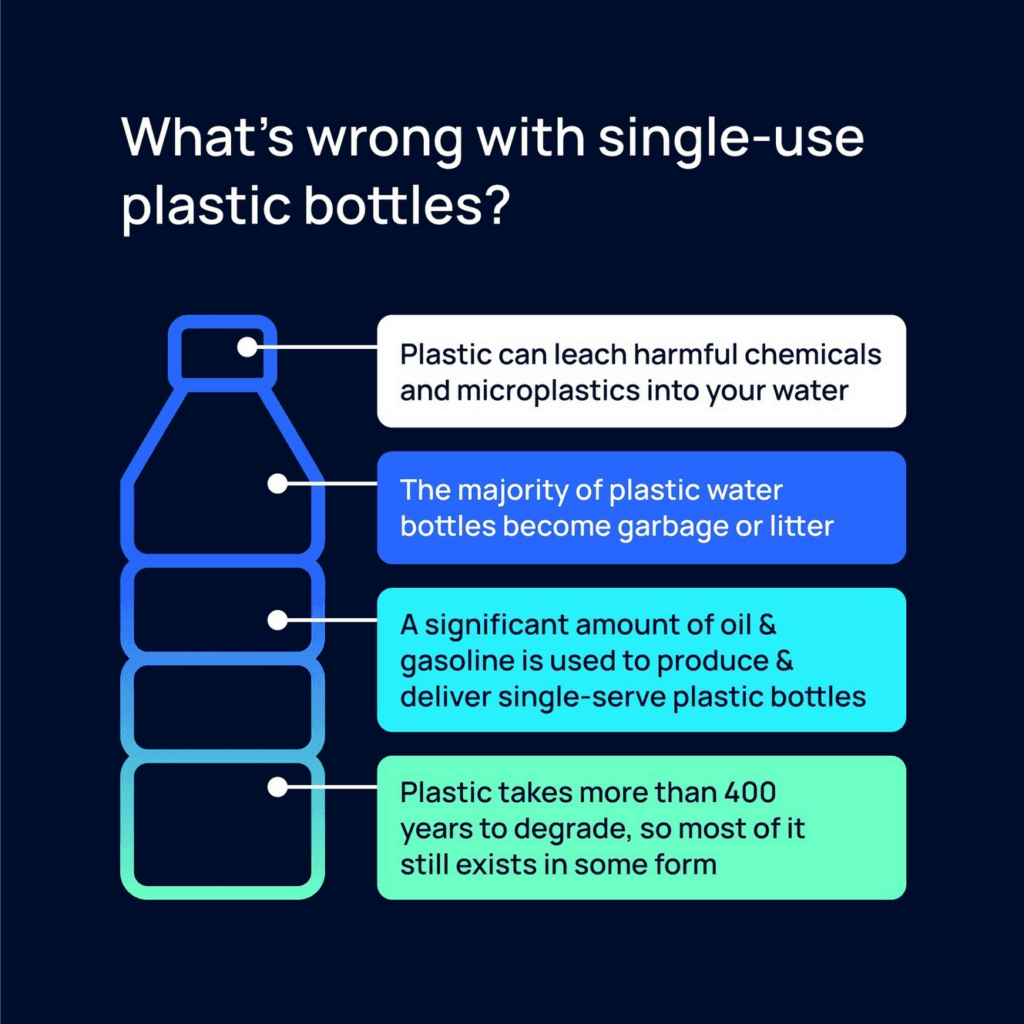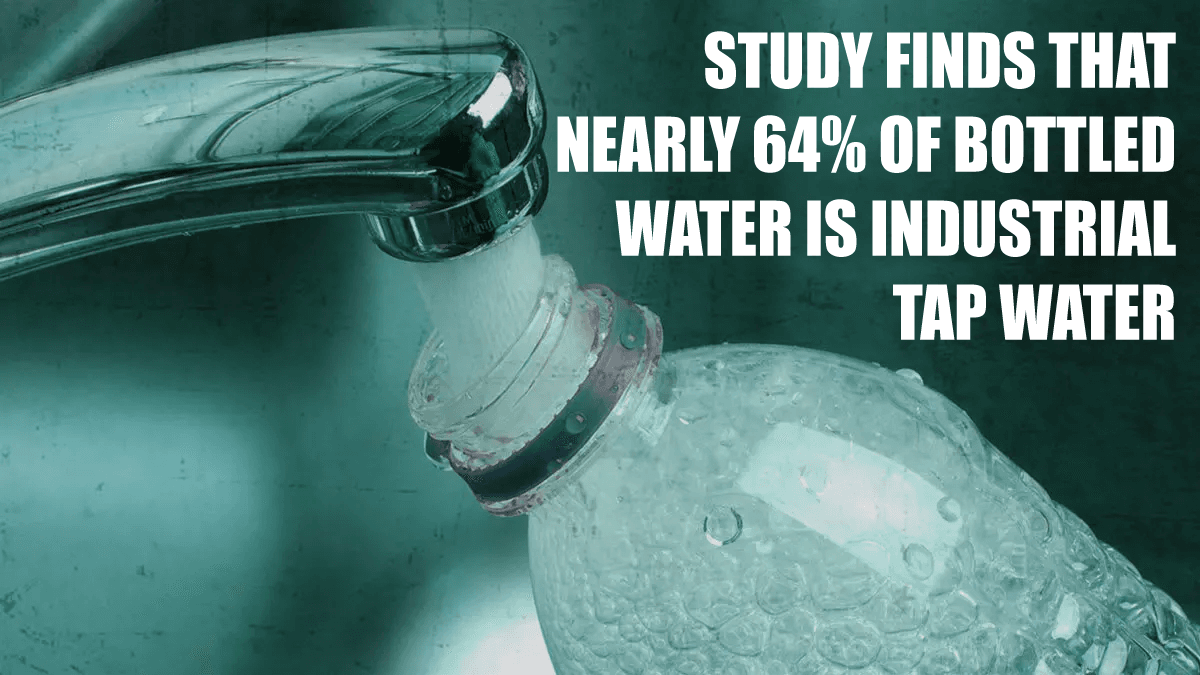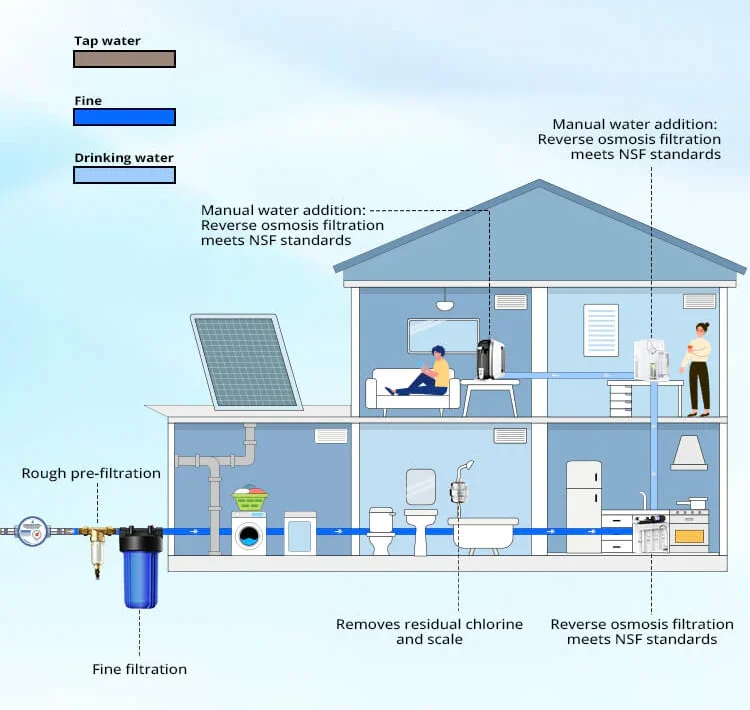In a world increasingly conscious of health and environmental impact, the choices we make about something as fundamental as drinking water carry significant weight. For years, bottled water reigned supreme as the convenient and seemingly pure hydration option. However, a closer look reveals a compelling alternative that not only rivals but often surpasses bottled water in both quality and sustainability: filtered mineral water.
This isn’t about simply filtering tap water; it’s about taking naturally mineral-rich water and enhancing its purity while retaining its beneficial elements. It’s about a more sustainable and often healthier approach to hydration. Let’s dive deep into the reasons why filtered mineral water emerges as the superior choice.
Understanding the Basics: Bottled Water vs. Filtered Mineral Water
Before we delve into the comparisons, it’s crucial to define our terms:
- Bottled Water: This encompasses a vast range of water types packaged in plastic or glass bottles. It can originate from various sources, including springs, wells, municipal supplies (treated tap water), and even glaciers. The quality and mineral content can vary drastically between brands and sources.
- Filtered Mineral Water: This refers to water that naturally contains a significant amount of dissolved minerals. This water then undergoes a filtration process to remove impurities, sediment, chlorine (if applicable), and other unwanted contaminants, while crucially retaining its natural mineral composition. This can be achieved through various in-home or commercial filtration systems designed to preserve minerals.
The Quality and Purity Showdown
One of the primary reasons people turn to bottled water is the perception of superior purity. However, this perception isn’t always accurate:
- Source Transparency: The source of bottled water can sometimes be ambiguous. While some brands proudly declare their spring or well source, others simply label their product as “purified water,” which often means it’s treated tap water. Filtered mineral water, by its very definition, starts with a known mineral-rich source. When you filter it yourself, you have complete control over the water you’re treating.
- Filtration Processes: Bottled water undergoes various treatment processes, which can include reverse osmosis, distillation, and ozonation. While these methods effectively remove contaminants, they can also strip the water of its natural minerals, resulting in a taste that some find flat or lifeless. Filtered mineral water, when using appropriate filtration methods, focuses on removing impurities while preserving the natural mineral content that contributes to its taste and potential health benefits. High-quality filters can target specific contaminants without completely demineralizing the water.
- Potential Contamination During Bottling and Storage: Bottled water, despite the purification process, can be susceptible to contamination during the bottling process and subsequent storage. Plastic bottles can leach chemicals, particularly when exposed to heat or sunlight. While regulations exist, trace amounts of plasticizers have been found in some bottled water. Filtered mineral water, especially when filtered at home and consumed promptly, minimizes this risk significantly. You control the filtration and the vessel you drink from.
The Health and Nutritional Angle
Beyond basic hydration, water can contribute to our mineral intake. This is where filtered mineral water truly shines:
- Natural Mineral Content: Mineral water naturally contains essential minerals like calcium, magnesium, potassium, and bicarbonate, which play vital roles in various bodily functions, including nerve function, muscle contraction, bone health, and maintaining electrolyte balance. Filtration, when done correctly, preserves these beneficial minerals. Bottled water, especially those that have undergone extensive purification, may have significantly lower or even negligible mineral content.
- Enhanced Taste: The natural minerals present in mineral water contribute to its distinct and often preferred taste. Different mineral compositions result in unique flavor profiles. Filtering this water enhances its cleanliness without sacrificing the palatable and refreshing taste derived from these natural elements. Bottled water, particularly demineralized varieties, can lack this natural character.
- Potential Health Benefits: Studies suggest that regular consumption of mineral-rich water can contribute to overall well-being. For instance, calcium and magnesium are crucial for bone health, while bicarbonates can aid in digestion. By choosing filtered mineral water, you’re not just hydrating; you’re potentially supplementing your mineral intake in a natural and easily absorbable form.
The Environmental Imperative
The environmental impact of our choices is increasingly critical, and this is where the contrast between bottled water and filtered mineral water is stark:
- Plastic Waste: The bottled water industry is a massive contributor to plastic waste globally. Billions of single-use plastic bottles end up in landfills and oceans each year, taking centuries to decompose and causing significant environmental damage. While recycling efforts exist, the majority of plastic bottles are not recycled. Filtered mineral water drastically reduces this waste. By using a reusable water bottle with your home filtration system, you eliminate the need for single-use plastics.
- Carbon Footprint: The production, transportation, and disposal of bottled water have a significant carbon footprint. Energy is required for manufacturing the bottles, filling them, transporting them across potentially long distances, and then managing the waste. Filtering your own mineral water at home significantly lowers this carbon footprint, as you eliminate the energy-intensive processes associated with bottled water.
- Resource Depletion: The extraction of raw materials for plastic production and the sourcing of water for bottling can strain natural resources. Filtered mineral water, especially when sourced locally (your tap water, if it’s naturally mineral-rich), is a more sustainable approach that minimizes the demand on these resources.
Convenience and Cost Considerations
While bottled water is often perceived as convenient, filtered mineral water offers its own advantages:
- Accessibility: With a home water filtration system, you have access to filtered mineral water on demand. No more last-minute trips to the store or lugging heavy packs of bottled water.
- Cost-Effectiveness: Over the long term, filtered mineral water is significantly more cost-effective than consistently purchasing bottled water. The initial investment in a filtration system pays off quickly, and the cost per gallon of filtered water is a fraction of the price of bottled water.
- Customization: With a home filtration system, you have some control over the level and type of filtration. You can choose filters that specifically target contaminants of concern in your local water supply while ensuring mineral retention.
Choosing the Right Filtration for Mineral Water
It’s important to choose a filtration system that is suitable for mineral water and your specific needs. Some filtration methods, like reverse osmosis, are highly effective at removing almost all contaminants, including minerals. For filtered mineral water, you’ll want to consider options like:
- Activated Carbon Filters: These filters effectively remove chlorine, sediment, and volatile organic compounds (VOCs) while generally leaving minerals intact.
- Ceramic Filters: These filters have small pores that can trap bacteria, parasites, and sediment while allowing minerals to pass through.
- Specific Media Filters: Some filters are designed to target specific contaminants like heavy metals while preserving essential minerals.
It’s crucial to research different filtration systems and choose one that aligns with your water quality and desired mineral content. Testing your local water supply can help you determine the best filtration approach.
Make the Sustainable and Healthy Choice
The evidence is compelling: filtered mineral water offers a superior alternative to bottled water on multiple fronts. It often provides better quality and purity, retains essential natural minerals for enhanced health and taste, and is significantly more environmentally sustainable. While bottled water may offer perceived convenience in certain situations, the long-term benefits of filtered mineral water for our health, our wallets, and our planet are undeniable.
By investing in a suitable water filtration system and choosing to filter naturally mineral-rich water, we can make a conscious choice that not only hydrates us effectively but also contributes to a healthier and more sustainable future. It’s time to move beyond the allure of single-use plastic and embrace the benefits of clean, mineral-rich water filtered right in our homes.



